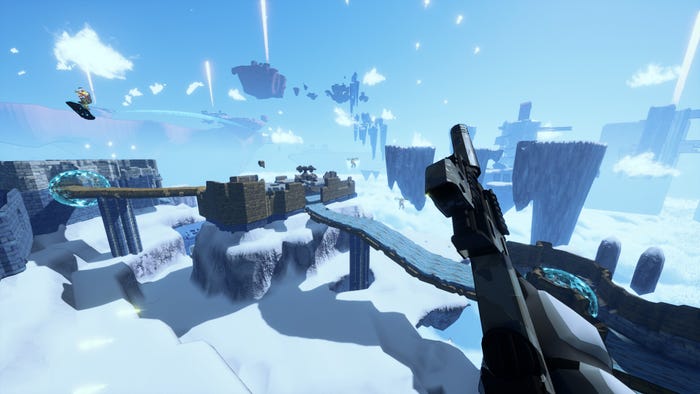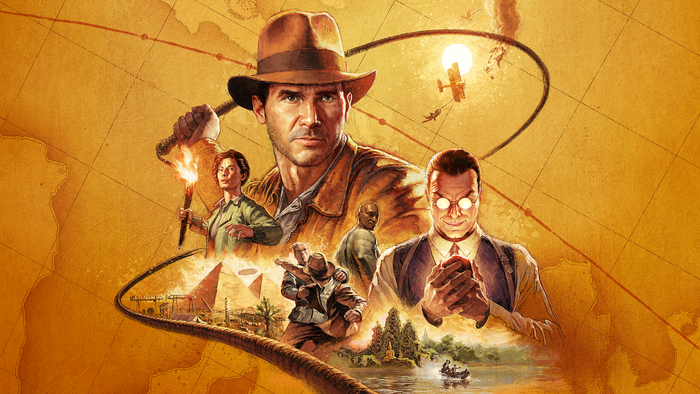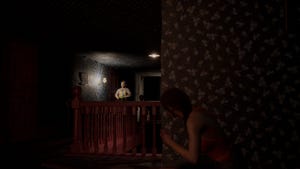Postmortem: The Creation Of Little King's Story
Little King's Story producer and director Yoshiro Kimura discusses the development of the critically acclaimed but somewhat overlooked Pikmin-style Wii RTS life sim, complete with exclusive early production artwork.
January 8, 2010

Author: by Yoshiro Kimura
[This mini-postmortem of intriguing, Wii-exclusive Pikmin-style RTS life sim Little King's Story was written for Gamasutra by Yoshiro Kimura of Marvelous, who previously devised such games as Chulip, and whom we have also interviewed in the past.] My name is Yoshiro Kimura, the director and producer of Little King’s Story (LKS) for Japanese game developer Marvelous. I've written a short, informal postmortem with a few examples of what went wrong and what went right during the game's development, and I hope you will find my report useful. I was leading this project as a director, but also as a producer, so some of my explanations will be from a producer’s point of view, the others from a director’s. What Went Right: As Producer Even if it took some time, pinning down the game concept and art direction before starting the project was the key to getting the result we achieved. We feel that we managed to get pretty close to the same quality as Nintendo’s products. LKS characters are really funny and lovable - in addition, the music is great and I think we did a good job at making it a real interactive experience. To that end, we did a great job at simplifying the RTS and simulation genre, which are usually the exclusive realm of core-gamers, to make it accessible to all players while still keeping the depth demanded by veteran players.  To gather the best team for this project, we had to work with people located in different physical offices but even if it was hard at the beginning, we managed to overcome this issue (the publisher Marvelous is in Tokyo, while developers Cing and Town Factory are in Fukuoka). What Went Wrong: As Producer We were behind schedule and we had to delay the release date. After that, due to some re-writing, I had to re-think the handling of text data for the localization. We had to scrap the multiplayer feature: A local two-player feature was implemented in the code but had to be removed. I also had to abandon the idea of having a network feature.
To gather the best team for this project, we had to work with people located in different physical offices but even if it was hard at the beginning, we managed to overcome this issue (the publisher Marvelous is in Tokyo, while developers Cing and Town Factory are in Fukuoka). What Went Wrong: As Producer We were behind schedule and we had to delay the release date. After that, due to some re-writing, I had to re-think the handling of text data for the localization. We had to scrap the multiplayer feature: A local two-player feature was implemented in the code but had to be removed. I also had to abandon the idea of having a network feature.  What Went Right: As Director Game control was intuitive using the NPCs: the NPCs who are following the King are used as human ammo, like in a shooting game, and it proved to be a really entertaining and funny game gimmick. Fighting and job system: We managed to create many job classes with different personalities for each NPC. A solid AI routine for the life simulation part of the NPCs: The AI routine created for LKS makes the kingdom really lively with each NPC busy with his own life. Seven King Bosses: We have really unique and interesting boss characters, and we managed to reflect not only in the game scenario but also in the gameplay. Overall, I feel we created a beautiful, colorful, and funny world to explore. What Went Wrong: As Director Removal of the evolution feature of the NPCs: In the original concept, we were considering having a system in which the NPCs would develop automatically through their life simulation in the kingdom without requiring the user to grind. However, we started to realize that by using such a development system, the NPCs couldn’t keep up with the later enemies or became far too strong, ruining all the level design created to that point. Eventually, in order to keep the balance of the fighting system/level design we decided to scrap this feature. Instead, to strengthen your royal guard the user would just have to pick up the job classes needed or increase the number of soldiers in his team. Tidying up the job matrix: In the middle of the project, we realized that the AI of the different job classes started to get hectic. There are 20 job classes in LKS and eventually the AI matrix of their behavior depending of the enemy/object targets had to be rewritten, and that took a lot of time. For example, depending of the target, the behavior of a farmer should be different from the carpenter’s. And if you don’t tidy up your job matrix properly, you can end up with soldiers digging holes whereas it should be the farmer’s job. We also had to consider and readjust the timing of when we made each job class available, to allow you to beat each boss while keeping the game balanced. Deleting the 1st chapter of Little King's Story: In the original code, there was an introduction chapter where you could play Corobo in pajamas looking for the crown. It took you around 40 minutes before you could find the crown, and it actually hindered the tempo. That’s why we decided to cut this and replace it with the opening you can see in the final game. Remove all the Wii remote motion control features: When we started to work on LKS, we considered using the Wii remote motion control functions but eventually we abandoned this idea as it didn’t really work with the game, and didn’t make it more fun to play. Our conclusion is that implementing the Wii remote motion features just for the sake of implementing them is wrong. Additional effects were necessary: The final product we created was correct, but we needed to put additional post-effects on screen. However, we were running out of memory, until one of our programmers had a spark of genius and managed to create an effect we called “Cross Lemonade,” which you can see in the final version of the game.
What Went Right: As Director Game control was intuitive using the NPCs: the NPCs who are following the King are used as human ammo, like in a shooting game, and it proved to be a really entertaining and funny game gimmick. Fighting and job system: We managed to create many job classes with different personalities for each NPC. A solid AI routine for the life simulation part of the NPCs: The AI routine created for LKS makes the kingdom really lively with each NPC busy with his own life. Seven King Bosses: We have really unique and interesting boss characters, and we managed to reflect not only in the game scenario but also in the gameplay. Overall, I feel we created a beautiful, colorful, and funny world to explore. What Went Wrong: As Director Removal of the evolution feature of the NPCs: In the original concept, we were considering having a system in which the NPCs would develop automatically through their life simulation in the kingdom without requiring the user to grind. However, we started to realize that by using such a development system, the NPCs couldn’t keep up with the later enemies or became far too strong, ruining all the level design created to that point. Eventually, in order to keep the balance of the fighting system/level design we decided to scrap this feature. Instead, to strengthen your royal guard the user would just have to pick up the job classes needed or increase the number of soldiers in his team. Tidying up the job matrix: In the middle of the project, we realized that the AI of the different job classes started to get hectic. There are 20 job classes in LKS and eventually the AI matrix of their behavior depending of the enemy/object targets had to be rewritten, and that took a lot of time. For example, depending of the target, the behavior of a farmer should be different from the carpenter’s. And if you don’t tidy up your job matrix properly, you can end up with soldiers digging holes whereas it should be the farmer’s job. We also had to consider and readjust the timing of when we made each job class available, to allow you to beat each boss while keeping the game balanced. Deleting the 1st chapter of Little King's Story: In the original code, there was an introduction chapter where you could play Corobo in pajamas looking for the crown. It took you around 40 minutes before you could find the crown, and it actually hindered the tempo. That’s why we decided to cut this and replace it with the opening you can see in the final game. Remove all the Wii remote motion control features: When we started to work on LKS, we considered using the Wii remote motion control functions but eventually we abandoned this idea as it didn’t really work with the game, and didn’t make it more fun to play. Our conclusion is that implementing the Wii remote motion features just for the sake of implementing them is wrong. Additional effects were necessary: The final product we created was correct, but we needed to put additional post-effects on screen. However, we were running out of memory, until one of our programmers had a spark of genius and managed to create an effect we called “Cross Lemonade,” which you can see in the final version of the game.  Final Notes I would say that you need to control the flow of ideas and delete things when necessary. During the development of a game, when you have a good concept, the staff usually comes up with a lot of ideas. My head is actually filled with so many ideas that I can’t see the end of it. However, no matter the type of game you are making, whether it’s an RPG or action game, adding too many ideas does not serve the game and they have to be polished properly, meaning tidying up and cutting out elements, if you want to achieve a high quality game. Data Box Team members There were more than 100 people working on LKS in some capacity. The main development staff worked on this project from the beginning to the last end, but the rest of the staff mentioned below was actually working from time to time on LKS. Main development staff: 20 people Modeler: 10 people Character Artist: 2 people Composer: 2 people Sound Effect: 5 people Musicians: 30 people Voice Actors: 18 people (mysterious foreign friends) Storyboard: 1 person Movie: 12 people UI Designer: 1 person Title logo designer: 1 person Milestones 2006 June: Game Concept 2006 November: Evaluation of the prototype 2007 March: Full development start End of February 2009: European master submission End of April 2009: US and Japanese master submission April 26, 2009, European release July 21st, 2009, US release September 3rd, 2009, Japanese release Software used Maya Pro Tools Adobe Platform (Photoshop, After Effect, etc…) Project Size File numbers: 1,338 files Code size: Around 3.13MB Code data size: Around 657KB [CG data, movie data, and sound data are not included in the figures above.]
Final Notes I would say that you need to control the flow of ideas and delete things when necessary. During the development of a game, when you have a good concept, the staff usually comes up with a lot of ideas. My head is actually filled with so many ideas that I can’t see the end of it. However, no matter the type of game you are making, whether it’s an RPG or action game, adding too many ideas does not serve the game and they have to be polished properly, meaning tidying up and cutting out elements, if you want to achieve a high quality game. Data Box Team members There were more than 100 people working on LKS in some capacity. The main development staff worked on this project from the beginning to the last end, but the rest of the staff mentioned below was actually working from time to time on LKS. Main development staff: 20 people Modeler: 10 people Character Artist: 2 people Composer: 2 people Sound Effect: 5 people Musicians: 30 people Voice Actors: 18 people (mysterious foreign friends) Storyboard: 1 person Movie: 12 people UI Designer: 1 person Title logo designer: 1 person Milestones 2006 June: Game Concept 2006 November: Evaluation of the prototype 2007 March: Full development start End of February 2009: European master submission End of April 2009: US and Japanese master submission April 26, 2009, European release July 21st, 2009, US release September 3rd, 2009, Japanese release Software used Maya Pro Tools Adobe Platform (Photoshop, After Effect, etc…) Project Size File numbers: 1,338 files Code size: Around 3.13MB Code data size: Around 657KB [CG data, movie data, and sound data are not included in the figures above.]
You May Also Like







